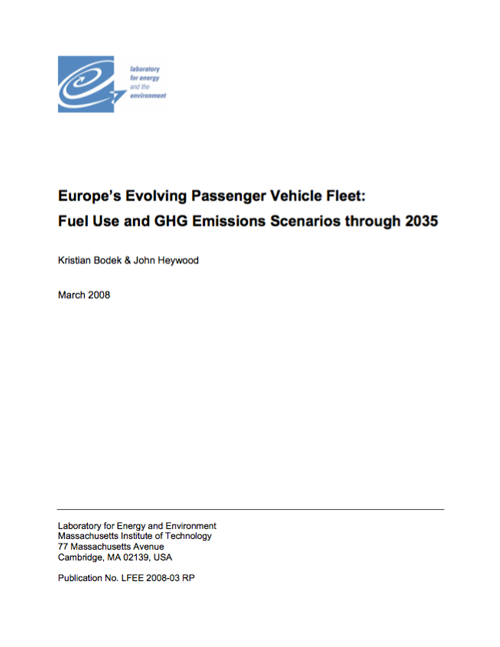Rising transport-related greenhouse gas (GHG) emissions and a growing imbalance between diesel and gasoline fuel demand is prompting concern, including significant policy discussions, over passenger vehicles in Europe. This study developed fleet models of France, Germany, Italy and the UK to evaluate fuel use and GHG emissions trends in these countries over the next 30 years. The models were run under three hypothetical scenarios, entitled No Change, Diesels Dominate, and Alternative Technologies Emerge. In the No Change scenario the existing vehicle sales mix, emphasis on reducing fuel consumption (ERFC) and fraction of biofuels in the fuel mix was held constant at 2005 levels. In the Diesels Dominate scenario and Alternative Technologies Emerge scenarios the ERFC was raised from a historic average 50 percent to 75 percent, and the fraction of biofuels in the fuel mix was increased over time to a 10 percent energy share by 2035. The two scenarios differed in that Diesels Dominate assumes that the sales fraction of diesel vehicles grows to 75 percent by 2035, whereas the Alternative Technologies Emerge scenario assumes that a mix of alternative powertrains (e.g. gasoline turbo, hybrids and CNG) achieve a 55 percent sales share by 2035. The scenarios and fleet models were used to evaluate the feasibility of proposed new vehicle GHG emission targets, the evolution of the diesel to gasoline fuel use ratio, and the relative ability for changes in the sales mix, ERFC and biofuels share to reduce fleet-wide fuel use and GHG emissions over the next 30 years.
MITEI Author
 John Heywood
Professor Emeritus
John Heywood
Professor Emeritus
Department of Mechanical Engineering
